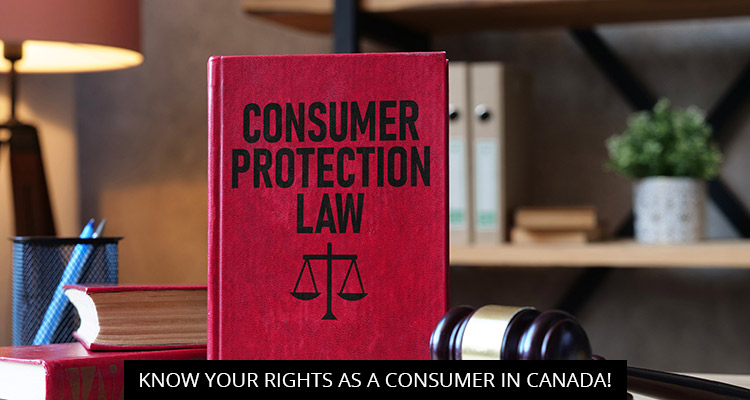
Each year, tons of consumer complaints are filed due to the breach of rights of consumers. According to 202 Consumer Complaints statistics by Better Business Bureau (BBB), 36,589 complaints were launched and 71% (26,107) of them were settled, whereas 28% (10,108) of the launched complaints remained unresolved.
Generally, a multitude of these complaints are filed by a common consumer whose rights are protected under the federal and provincial consumer protection legislations. The principal piece of consumer protection legislation is the Consumer Protection Act, 2002. This statute sets out foundational rules and standards that merchants, sellers, suppliers, or manufacturers are required to follow in order to provide maximum consumer protection in consumer transactions.
Not only has the government proactively initiated legislation to protect consumers’ rights, but a number of governmental and non-profit agencies have been put in place to administer the legal obligations that sellers are required to follow.
Essential Elements In The Protection Of Rights Of Consumers
Irrespective of the jurisdiction or province, there are a few general protections that are provided by almost every consumer protection statute in Canada.
Maintenance Of Minimum Quality
The consumer must be provided with the quality that he/she is being promised with regard to the product/good being purchased.
Prohibition Of False, Deceptive, And Unfair Practices
The sellers are prohibited to adopt any unfair practice that could deceive or mislead the consumer. Similarly, any sort of bait advertisement or aggressive marketing tactics that can shake down consumer’s right is also prohibited. In case a product that comes with an express warranty but in the future that warranty appears to be untrue, then, the manufacturer is bound to compensate for that loss.
Disclosure Of information
It is the right of the consumer to be informed of any necessary information with regard to the purchase of the good prior to that purchase. In the case of contracts where the disclosure of information was material before entering into a contract but the manufacturer fails to do so, then the deceiver has to pay for the loss incurred.
Refund And Exchange Policy
The seller is prohibited to contradict with his/her product’s refund or exchange policy. If a product carries any associated fee or additional charges with regard to the exchange of a product, then that must be mentioned within the policy. Furthermore, it is an obligation on seller’s part to specify the time duration for the return or exchange of the product.
Accuracy In Pricing And Billing
For pricing and billing, the prices of the goods or services should be represented clearly and any deceptive pricing practices, such as false discounts or bait-and-switch tactics are strictly prohibited.
Enforcement And Remedies
The consumers to seek remedies for violations of their rights. Consumers can file complaints with the Ministry of Government and Consumer Services or take legal action for compensation and other remedies.
The remedies can vary from case-to-case, for instance; in the case of Bernstein v. Peoples Trust Company, the defendants were companies who sell payment cards. They were sued in a class action suit as they misrepresented to the buyers about their due right to expired balances and hence constituted an unfair practice. The Superior Court of Justice of Ontario in this case awarded CAD 17 million dollars in aggregate and punitive damages.
However, the most common and recognized remedies include; replacement or repair of goods, compensation for loss, forfeiture of goods from the market, sealing of products, etc.
Contact The Lawyers At Ayaz Mehdi Professional Corporation
Consumer protection laws may vary by province, so it’s advisable to seek legal advice specific to your case. If you require any legal information, get in touch with our lawyers at Ayaz Mehdi Professional Corporation.
Disclaimer: Kindly note that sending or receiving information through this site does not establish a solicitor-client relationship. Legal matters are fact-specific, and the law is variably changing. The views expressed and the content provided on this blog are general guidelines and cannot substitute for proper legal advice. Schedule your legal consultation by clicking here: Let’s meet!






